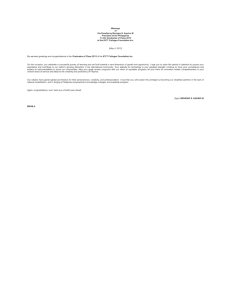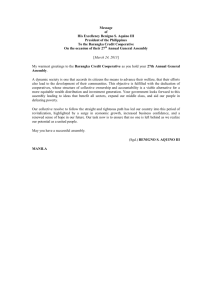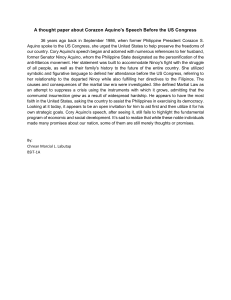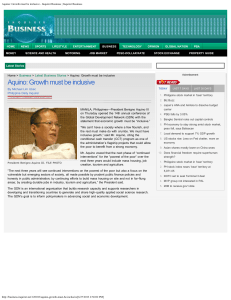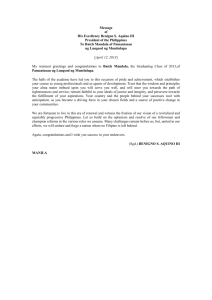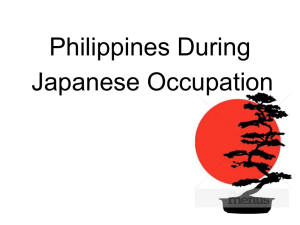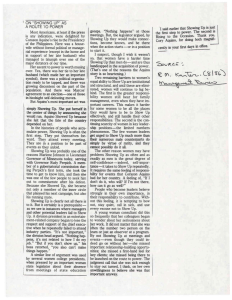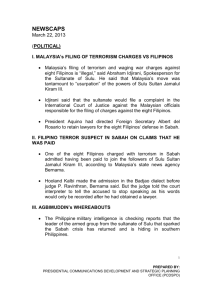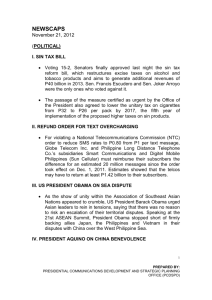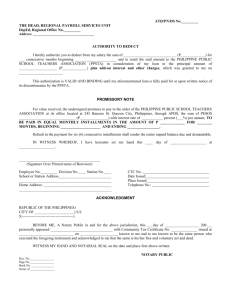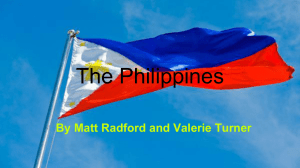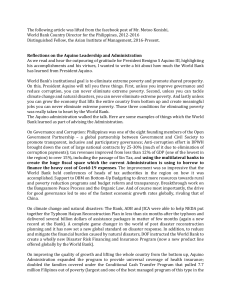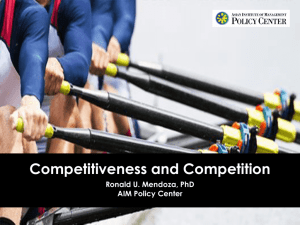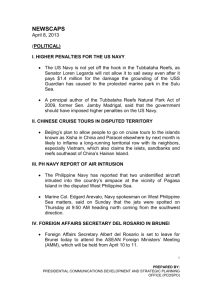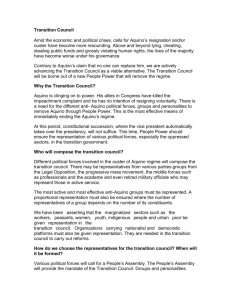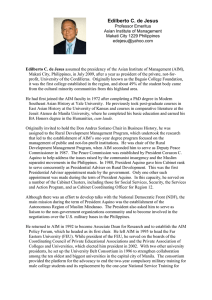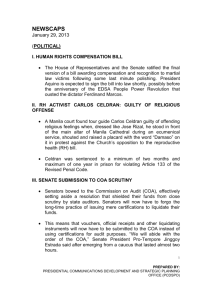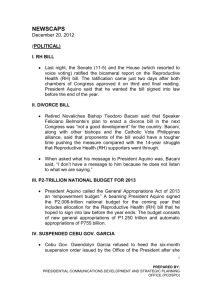Chapter 28: Benigno Aquino III Era 2010
advertisement
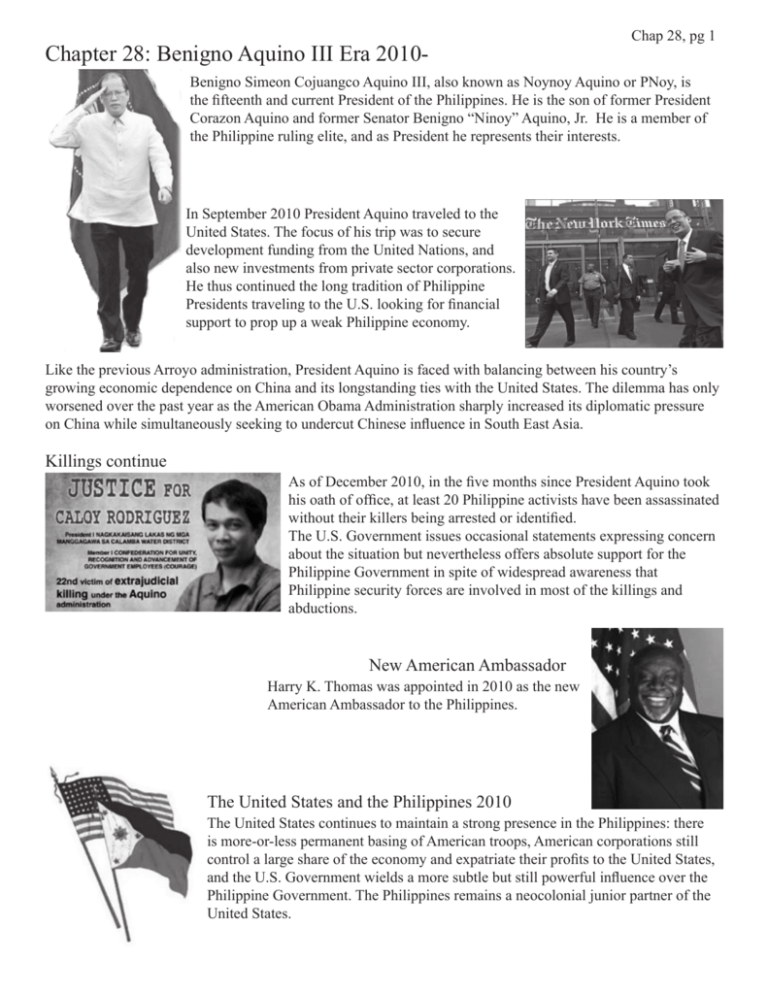
Chapter 28: Benigno Aquino III Era 2010- Chap 28, pg 1 Benigno Simeon Cojuangco Aquino III, also known as Noynoy Aquino or PNoy, is the fifteenth and current President of the Philippines. He is the son of former President Corazon Aquino and former Senator Benigno “Ninoy” Aquino, Jr. He is a member of the Philippine ruling elite, and as President he represents their interests. In September 2010 President Aquino traveled to the United States. The focus of his trip was to secure development funding from the United Nations, and also new investments from private sector corporations. He thus continued the long tradition of Philippine Presidents traveling to the U.S. looking for financial support to prop up a weak Philippine economy. Like the previous Arroyo administration, President Aquino is faced with balancing between his country’s growing economic dependence on China and its longstanding ties with the United States. The dilemma has only worsened over the past year as the American Obama Administration sharply increased its diplomatic pressure on China while simultaneously seeking to undercut Chinese influence in South East Asia. Killings continue As of December 2010, in the five months since President Aquino took his oath of office, at least 20 Philippine activists have been assassinated without their killers being arrested or identified. The U.S. Government issues occasional statements expressing concern about the situation but nevertheless offers absolute support for the Philippine Government in spite of widespread awareness that Philippine security forces are involved in most of the killings and abductions. New American Ambassador Harry K. Thomas was appointed in 2010 as the new American Ambassador to the Philippines. The United States and the Philippines 2010 The United States continues to maintain a strong presence in the Philippines: there is more-or-less permanent basing of American troops, American corporations still control a large share of the economy and expatriate their profits to the United States, and the U.S. Government wields a more subtle but still powerful influence over the Philippine Government. The Philippines remains a neocolonial junior partner of the United States.
